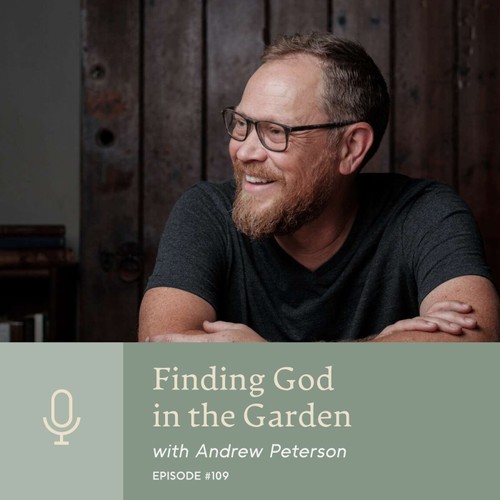
 Trinity Forum Conversations
Trinity Forum Conversations Finding God in the Garden with Andrew Peterson
5 snips
Apr 22, 2025 In this discussion, Andrew Peterson, an acclaimed author and songwriter, shares his profound insights on the intersection of gardening, spirituality, and personal growth. He emphasizes how attentiveness to beauty in our environments can awaken wisdom and wonder. Andrew reflects on the importance of community and memory in shaping identity, and the transformative power of poetry and nature. With a focus on creation care, he advocates for urban spaces that foster connection, encouraging listeners to engage meaningfully with their surroundings.
AI Snips
Chapters
Books
Transcript
Episode notes
Pandemic Sparked Tree Reflection
- Andrew Peterson got stuck at home during the COVID-19 pandemic, which was a first in 25 years of touring.
- He used this time to focus on trees as symbols of rootedness, place, and memory, inspiring his book "The God of the Garden."
Rootedness Anchors Identity
- Rootedness in place is vital to identity in a culture uprooted by transience and distraction.
- Building rhythms like recurring visits to local spots helps cultivate community and fight cultural amnesia.
Trees as Memory Keepers
- Andrew Peterson and Cherie Harder share memories of specific trees from childhood that unlock deeper memories.
- Trees serve as gentle keepers of our days and key points to remember personal history.













